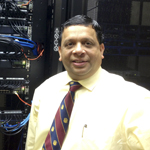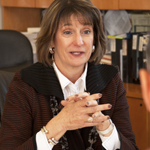The acronym CFO may call to mind buzzwords like “bookkeeper” and “bottom line,” but to Mark Zeffiro of TriMas Corporation—a manufacturing company specializing in packaging, energy, aerospace, engineered components, and towing and trailer accessories—the role of CFO is much more. For those who approach the charge strictly as a numbers game, Zeffiro says it can be “one of the loneliest jobs on the planet.” At TriMas, he keeps things interesting by being an active participant in the development and execution of business strategy. He shares with Profile his thoughts on his hybrid role and surrounding himself with similarly proactive professionals.
What do you consider your most important role as CFO?
Being a strategic partner to the CEO is the first thing I do to create shareholder value. Regulation and compliance are important as well, and there are experts in those fields to cover those needs. Our CEO, Dave Wathen, relies on me to provide organizational development by contributing to the discussion of where we want the company to go and how we will get it there.
Do you subscribe to the idea of the “strategic CFO” that has recently emerged?
I think of myself as an operationally oriented CFO. There is a difference between a reporter of facts and a participant in the decision. During meetings with our C-suite, we spend 10 percent of our time talking about what has happened and the remaining time discussing what has to happen. That’s when I take information out of the financial context and put it into perspective for our executives, asking how we generate better returns or how we will invest differently. I like to illustrate this to my team using the analogy that they need to be operational at their core but see the issues through a pair of financial glasses.
How have you assembled that team to help carry out your mission? What do you look for in team members?
Leadership tendencies are critical because leadership puts finance to work. I want to support our executives with a team of individuals who are collaborative, intellectually curious, results-oriented, and who are data-based decision makers. I also look for people who have taken on a job that no one else wants—not because it was a bad job, but because it was a difficult job. Life doesn’t come at you in a straight line—how you react to that and become a better business and financial professional is crucial.
With executives having more involvement in a greater number business decisions, and the corresponding overlap of business functions, do you think titles are becoming obsolete in the C-suite?
The whole concept of the C-suite has been diluted, so I don’t necessarily ascribe to the notion of titles. My approach to my work is that every day I wake up with a purpose to take care of shareholders. Knowing my responsibility set is first priority, regardless of my title.
How do you get away from the numbers to get out and learn the business?
It comes naturally in some respects. I look for trends and tendencies, so I can articulate them with a metric that is relevant to and illustrative for business leaders. Internally, we’ve examined productivity, which comes in three forms: material, labor, and overhead. We hadn’t measured productivity until a couple of years ago, but by collaborating with our business leaders, we saw the need for this new metric. Now I am able to compare productivity between labor and material production and ask about the strategies we need to employ to attack our shortcomings.
What are the key ways a CFO can work from data extraction to analysis?
I always get back to a simple picture. Whether or not a picture shows outliers or trends, a picture is much more effective at influencing an outcome. In my previous roles, I was responsible for global functions, working in Latin America, Asia, and the Pacific. I believe that if you can communicate across cultures, you can communicate across the C-suite.
What outward influences affect your role as CFO? How are you pivoting TriMas’s financial strategy to address them?
Over the next decade we are going to see a significant shift of activity outside of our most comfortable markets. We are developing the local expertise, oversight mechanisms, and controllership in emerging markets to make sure TriMas is prepared above the rest to continue to grow faster than the economy.

